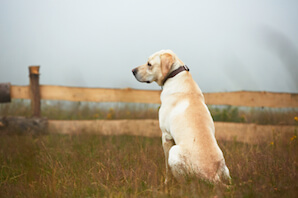How to adopt a rescue dog

Adopting a rescue dog can be a life-changing experience for you and your new pet. Here’s a helpful guide on how to approach your rescue search.
Many rescued animals will have experienced a tough start to life and need people who’ll give them all the love and attention they missed out on.
Because of that, any person considering rehoming one of these dogs should think long and hard before making such a big commitment. There are around 120,000 dogs waiting for a new home each year in the UK, which also includes many puppies needing rehoming.
Every reputable dog rescue organisation carries out a thorough assessment of the dog’s temperament as well as a vet check, so they’re able to match the dog with the right person.
Here are some extra things to consider before adopting a rescue dog.
Am I ready to adopt a rescue dog?
The fact that you’re rehoming a rescue dog raises some issues you may not have to consider if you were giving a home to a non-rescue dog.
Are you really ready for the responsibility of caring for a vulnerable animal? Do you have the time and patience required to cope with any behavioural issues? How will your family and existing pets cope with the new addition?
Even ‘new’ puppies bought from a breeder require lots of time and training, and they might end up having behavioural and health issues too.
For a first-time dog owner, consider adopting a young adult dog, perhaps two to five years old. At this age, the dog has calmed down from its puppy years, yet is young enough to fit into a new family.
Where can I go to adopt a rescue dog?
If you feel you’re ready to provide a loving home for a rescue dog, then the next step is finding a reputable rehoming centre in your area.
A quick Google search will show your local centres and you can then conduct your own enquiries into how good they are. Call up the centres and get a feel for how helpful the staff are. Rehoming a dog is a big decision, so it’s important to feel supported throughout the process.
Ask friends and family for recommendations and read reviews online to ensure you pick the right centre for you.
Petplan partners who can help you include: Battersea Dogs & Cats Home , Blue Cross and Dogs Trust.
If you would like to adopt a specific breed, search for a rescue centre that specialises in this breed, for example Vigil GSD for German sheepdogs, Doodle Trust for poodle crosses and the Greyhound Trust for retired racing Greyhounds.
Which dog is right for me?
Once you’ve found a centre and are sure you’re ready to rehome a rescue dog, it’s important to keep asking questions to make sure you find the right dog for you and your family.
Considering things like the age of the dog and their breed is vital to ensuring you’re able to care for them properly.
Speak to the rehoming centre staff, who will offer advice and, having got to know the dog during their time at the centre, are in a great position to assess whether you and the dog will be a good match.
How to find a puppy to adopt
Sometimes, pregnant bitches end up in dog rescues, which leads to puppies being born homeless. There are also, sadly, the ‘unwanted’ Christmas puppies that get surrendered to dog charities come January. You may be surprised at how many puppies for rehoming there are in the UK, so if you are set on rescue puppies, there might be one waiting just for you.
What should I expect from a dog rescue home visit?
A volunteer from your chosen charity will come to your home for an inspection and ask you some questions. This may sound more daunting than it is: the charity is interested in whether your house and any outside space are suitable for a dog and whether you and your family members are fully aware of the responsibilities that come with owning a dog.
Some questions might be how long the dog will be left alone each day; if you’ve considered the cost of having a dog and if you can afford it; and if you have previous dog experience.
What next?
Looking at dogs and puppies for adoption is a big undertaking and one that shouldn’t be taken lightly – just as it is with owning any animal.
Making sure your home is fit for a dog is an important first step, but things like regular exercise, good diet and veterinary check-ups – as well as giving them plenty of love and attention are vital to ensuring their long-term health and happiness.
Other areas that need to be addressed by all responsible pet owners include microchipping your dog, displaying a dog tag with all necessary ID on its collar, getting the correct inoculations and the right dog insurance.
If you find the responsibility of owning a dog too much or if a dog does not fit your current lifestyle, you can always volunteer at your local dog shelter and get your fill of puppy love, while helping a worthy cause.
Have you adopted a rescue dog? Are you considering rehoming an animal? Let us know your story and any advice you may have for potential adopters with #pethoodstories

